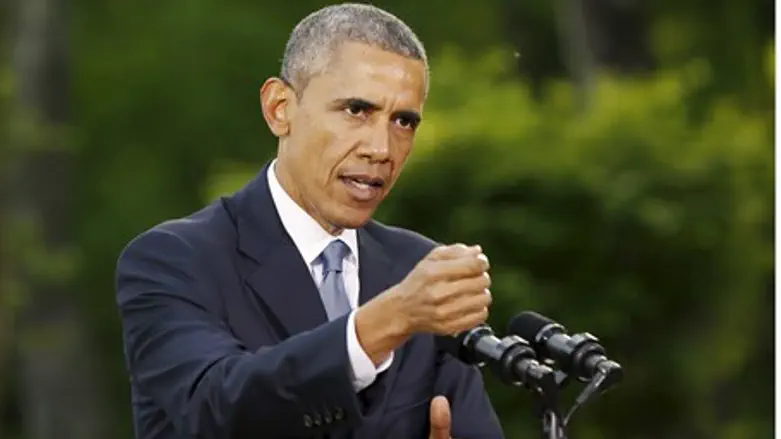
US President Barack Obama has been trying to muster support for his Iran nuclear deal in Congress ahead of a vote at the end of the 60-day Congressional review period, in desperate attempts to prevent a 2/3 majority able to overrule his veto.
In a recent conference call from the White House, Obama asked his supporters to help him establish political support for the deal as widely as possible, and not just in Washington.
"You need to work better. The group supporting the nuclear deal needs to make its voice heard in Congress, to deal with the opponents to the deal," Obama said.
He claimed that "opponents of the deal are flooding Congress, the voice of the other side also needs to be heard. This is a good deal that we need to be proud of."
Delegitimizing his opponents, Obama said that most opponents of the deal are "people who would oppose any type of deal with Iran, even if it was the best." He went on to sound his familiar claim that the alternative to the deal is war with Iran.
Ironically, Navy Adm. John Richardson, the nominee to be the next Chief of Naval Operations, told the US Senate Armed Services Committee on Thursday that aside from the current deal, there are "other options besides going to war," thereby debunking Obama's claim and echoing similar statements by Chairman of the Joint Chiefs of Staff Martin Dempsey from Wednesday.
White House spokesperson Josh Earnest said that the conference call was joined by "thousands of people representing a large number of groups that have worked with the White House in the past."
"Obama clearly won't get a majority"
Despite the positive spin, the White House is showing signs it knows it faces a serious challenge in trying to stop Congress from blocking the deal.
A senior adviser to Obama said the main problem is that precisely Democrats have raised difficult questions in public hearings.
"Currently the president is fighting mainly to succeed in imposing a veto in Congress, as it is clear he won't succeed in achieving a majority" of support for the deal, the adviser acknowledged.
However, Obama's inner circle is not giving up the fight by any means.
Minority Leader of the House of Representatives Nancy Pelosi (D-CA) essentially confirmed the adviser's assessment that Obama will not enjoy a majority of support in comments made Thursday night, in which she said she believes the Democrats will succeed in obtaining a presidential veto to pass the deal.
According to Pelosi, a media blitz is planned before Congress reconvenes after summer recess, in a move planned to counter lobbying groups working against the deal.
"More and more Democratic legislators promise me that they will stand next to the president so that he will be able to impose a veto," said Pelosi.
Cory Fritz, spokesperson for House Speaker John Boehner (R-OH), on Thursday night summarized the situation in Congress by saying, "more Democrats and Republicans in Congress are interested in learning everything about this deal, and they have more than a few questions."
"The fact that members of the president's party are ready to cancel the deal after they received the explanations needs to be a wake-up call for the White House."
Congressional hearings have revealed the classified sections of the deal have the leading state sponsor of terror inspect its own covert nuclear sites, in one of numerous caveats of the deal that have critics highly concerned.

